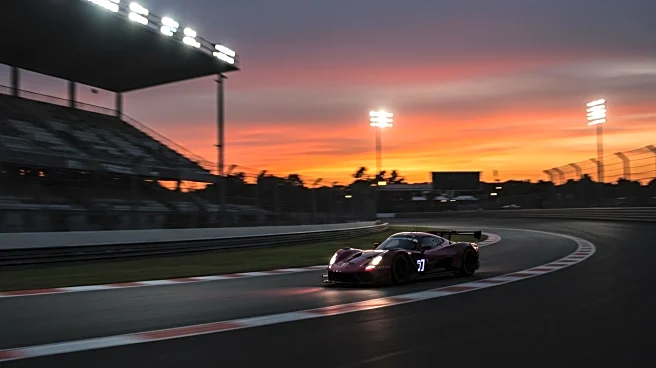What is the story about?
What's Happening?
Richmond Raceway is set to host its only NASCAR Cup race of the season this Saturday night, with significant implications for the playoff standings. With two races left in the regular season, the 16-driver playoff field has three open spots, as 13 winners have essentially secured their berths. Tyler Reddick is likely to clinch a spot at Richmond, given his 117-point lead over the cutline. Alex Bowman and Chris Buescher are holding onto the final provisional spots based on points. Drivers like Kyle Busch, Ty Gibbs, and Brad Keselowski need a win at Richmond or Daytona to qualify for the playoffs. Richmond marks the fourth of six short-track races this season, with Chase Briscoe being the only driver to achieve top-10 finishes in the previous three. This year, Richmond is scheduled for only one race weekend, a change from its historical two annual races since 1959, except for 2020 when one race was canceled due to the COVID-19 pandemic.
Why It's Important?
The Richmond race is crucial for drivers on the cusp of playoff qualification, as it offers one of the last opportunities to secure a spot. The outcome will significantly impact the playoff lineup, affecting team strategies and driver standings. For drivers like Kyle Busch and Brad Keselowski, a win is essential to continue their championship pursuits. The race also highlights the competitive nature of short-track racing, which demands precision and skill, influencing team preparations and fan engagement. The shift to a single race weekend at Richmond reflects broader scheduling changes in NASCAR, potentially affecting local economies and fan experiences.
What's Next?
Following the Richmond race, drivers will have one more chance at Daytona International Speedway to secure playoff positions. Teams will analyze performance data from Richmond to refine strategies for Daytona, where the stakes will be high. Fans and stakeholders will closely watch the playoff field's finalization, anticipating intense competition and potential surprises. NASCAR will continue to adapt its schedule and format, considering fan feedback and logistical factors.
Beyond the Headlines
The reduction to one race weekend at Richmond may have long-term implications for local businesses and tourism, as fewer events could mean decreased economic activity. Additionally, the focus on short-track racing emphasizes NASCAR's commitment to diverse race formats, which could influence future scheduling and track investments. The playoff dynamics underscore the importance of consistent performance and strategic planning in motorsports.
















